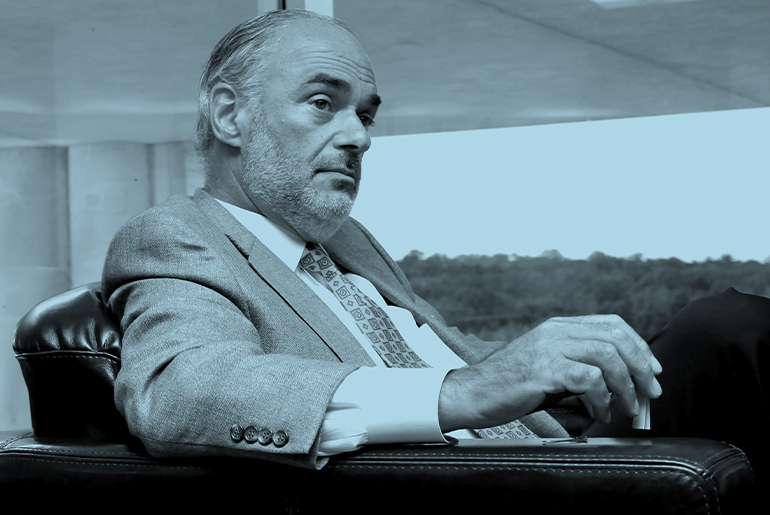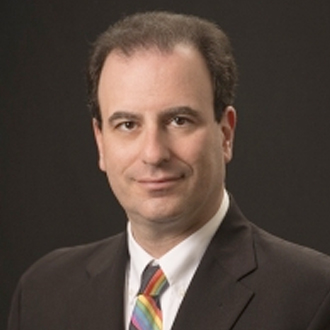Robert P. Weisz is president and CEO of the RPW Group Inc., one of the most prominent commercial property management firms in the tristate area. The company’s more than 3 million square feet of holdings include the sleek 1133 Westchester Ave. in White Plains, with its expansive lobby, and the more than 500,000-square-foot former Philip Morris Companies property at 800 Westchester Ave. in Rye Brook, better known as “Westchester’s Taj Mahal.” Weisz bought it in 2004 for $40 million, adding $70 million worth of renovations to it. Today it’s a multitenant space where the RPW Group is headquartered.
Weisz epitomizes the American immigrant success story. Born in Montevideo, Uruguay, he arrived in the United States in January 1977 with his initial focus on building a career in the furniture industry. After two years, he purchased his first warehouse to house his furniture company and in 1980 transitioned into becoming a real estate entrepreneur.
It’s a career that underpins what is even more important to him — family and philanthropy. Wife Cristina will come in to look at projects, he has said. Son Andrew S. is RPW Group’s executive vice president. (Daughter Alexandra is an attorney.)
Weisz sits on various city and town committees, serving as a member of the board of directors of the Westchester County Association, Reaching U and the Inner-City Scholarship Fund of the Archdiocese of New York City. In 2014, Mercy College in Dobbs Ferry awarded him an honorary doctorate in commercial science.
In this exclusive interview with WAG, Weisz details his unique journey.
Where does the Robert Weisz story begin?
“My family came from Poland and from Hungary, and they were escaping the Holocaust. Uruguay was a very welcoming place for Jews and people in general. It is a small country on the east side of South America that is very friendly, with mild temperatures and wonderful people. I had a great childhood growing up in Uruguay.”
Why did you decide to come to the United States?
“Before coming to the States, I went to college in Brazil at an American university in São Paulo. I studied business administration and, when I graduated, it was kind of a natural progression to come to the States and get to know the American way of life.”
When you came here in 1977, you began a career in the furniture industry. Why furniture? And how did you go from furniture to real estate?
“My father in Uruguay had a furniture factory, so I knew a little bit about furniture. And when I came to New York, I wanted to be in business on my own, but there weren’t too many things that I could do.
“So, I made an arrangement with my father that he would give me lines of credit and I would import furniture from Uruguay, which I did. However, it turned out that the freight from Uruguay was extremely expensive. I ended up importing furniture from the Far East and Eastern Europe.
“As my company grew, I bought a warehouse in Weehawken, New Jersey, that was much larger than I needed. I kind of discovered a new industry, and after that I bought a second warehouse and then a third and a fourth. After about six or seven buildings, I sold the furniture business and I concentrated on real estate. Since then, we have bought approximately 70 buildings.”
You’ve been in the real estate business since the 1980s. How has the business changed over the past four decades?
“It is historically different because the real estate business has been a business of families and individuals that accumulated wealth and were able to buy real estate. That was pretty much the structure of the business until 30 or 40 years ago with the creation of real estate investment trusts (REITs), which buy real estate through entities that are financed on Wall Street. It changed the nature of the business and has become a much more impersonal business run by executives, and the ownership is really held by thousands of shareholders.”

You also have a second generation following you in the business. Was it always your plan to have this as a family business?
“It was always my plan to make it available to my children. However, it was an understanding that it would not be an automatic process. It would involve them going to college and then working on their own for a number of years. And then after that, if there was a mutual interest and if there was a good chemistry, that would be something that I would encourage.
“In one case with my daughter, she’s an attorney and working in the business has not interested her. But in my son’s case, he turned out to be a natural and embraced the business and is pretty much running it now.”
How did your business hold up during the pandemic?
“We’ve been very fortunate that we’ve been very conservative over the years, so we were able to weather the past 15 months. It’s been a very stressful time for everyone and our personal lives have dramatically changed.
“However, we were coming out of this pandemic with a very solid business. We were able to add another building in December and are well-positioned for what we expect to be a dramatic expansion. We think that the next few years there will be great growth and great demand in spite of the pandemic that made people work from home.”
What is on your agenda for the second half of this year?
“We are working on some possible acquisitions, so that is something that could potentially happen over the next few months. We will continue doing the improvements that we have been doing for the past 12 to 18 months.”
Are you still in touch with Uruguay?
“I have brothers and nephews and friends. We also have a summer house.… The seasons are reversed, so it’s summertime in January and February in Uruguay. I’ve always loved the place, so I usually travel with my wife and sometimes with the children for an extended time during the winter.”
For more, visit rpwgroup.com.





